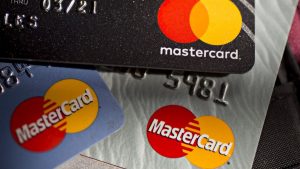Mastercard taps Paxos to bring cryptocurrency trading to banks
October 18, 2022518 views0 comments
By Chisom Nwatu
Payments giant Mastercard has launched a programme, Crypto Source, with the crypto trading platform Paxos to let financial institutions offer cryptocurrency trading to their customers.
Read Also:
 MasterCard’s new programme will help financial institutions like banks to offer cryptocurrency trading by acting as a bridge between banks and Paxos, already being used by PayPal to offer a similar service.
MasterCard’s new programme will help financial institutions like banks to offer cryptocurrency trading by acting as a bridge between banks and Paxos, already being used by PayPal to offer a similar service.
Paxos will handle custody and trading, while Mastercard will handle regulatory compliance and security.
Through Crypto Source, users can buy, hold, and sell cryptocurrencies, complemented by Mastercard’s proprietary Crypto Secure solution. The payment giant will assist banks with crypto compliance rules, verify transactions, prevent money laundering, and monitor identities.
Mastercard’s latest move comes a week after rival Visa announced a “long-term global partnership” with the FTX exchange and expanded its crypto debit cards to Asia, South America, and Europe.
However, it has not entered the crypto world for the first time. Earlier this month, the payment giant introduced a service that allows issuers to assess the risk profile of cryptocurrency exchanges in order to make crypto buying safer.
“At Mastercard, trust is our business. What we are announcing today is a connected approach to services that will help bring users safely and securely into the crypto ecosystem. Our recent investments in this space, such as the acquisition of CipherTrace and Ekata, are providing us with a unique set of capabilities to help provide our customers and consumers with the most technically advanced solutions available in the market,” said Ajay Bhalla, president, Cyber & Intelligence at Mastercard.
CNBC reports that some consumers have been sceptical of cryptos, quoting Jorn Lambert, Mastercard’s chief digital officer, as saying that polling still shows demand for the asset, but roughly 60 percent of respondents said they would rather test the waters through their existing banks.
“There’s a lot of consumers out there that are really interested in this, and intrigued by crypto, but would feel a lot more confident if those services were offered by their financial institutions. It’s a little scary to some people still,” Lambert told CNBC in an interview.
Large investment banks like Goldman Sachs, Morgan Stanley and JPMorgan have dedicated crypto teams but have largely avoided offering it to consumers. Just recently, at an Institute for International Finance event, Jamie Dimon, JPMorgan CEO, called cryptocurrencies “decentralized Ponzis”. If banks do embrace this Mastercard partnership model, it may mean more competition for Coinbase and other exchanges operating in the U.S.
Mastercard plans to pilot the product in the first quarter of next year, then “crank the handle” to expand in more geographies, but Lambert declined to say which banks have signed up so far.
While the industry is living through a bear market or “crypto winter”, Lambert said more activity down the road could lead to more transactions and fuel Mastercard’s core business.
“It would be shortsighted to think that a little bit of a crypto winter heralds the end of it — we don’t see that,” he said. “As regulation comes in, there is going to be a higher degree of security available to the crypto platforms and we’ll see a lot of the current issues getting resolved in the quarters in the years to come.”
